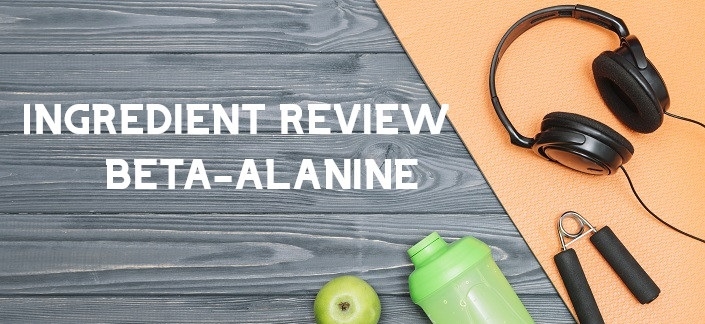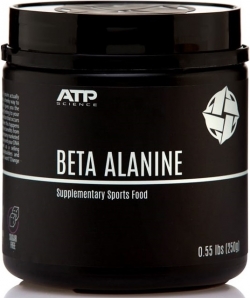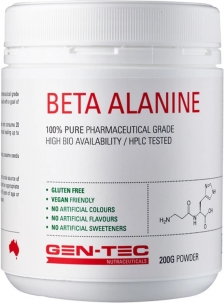Ingredient Review: Beta-Alanine

What is Beta-Alanine?
Beta-Alanine is both a non-proteomic and a non-essential amino acid, due to the fact that it is not incorporated into muscle protein and is synthesized in the liver. Beta-Alanine is found in the skin, nervous system and muscle tissue.
Beta-Alanine differs to the standard alanine (Alpha-Alanine or L-Alanine) found in protein powders at around 3.5% for whey protein isolate and 4.3% for pea protein isolate.
Beta-Alanine is found in the diet of omnivores in muscle meats, including chicken and red meat. However, 250g of red meat contains approximately only 0.2 grams. Therefore, through diet alone it is near impossible to optimise your beta-alanine level for peak athletic performance.
Beta-Alanine is required for the synthesis of Carnosine, a muscle specific di-peptide. Beta-Alanine is termed rate-limiting as the level of beta-alanine determines carnosine synthesis, with normal physiological levels limiting carnosine synthesis. Beta-Alanine supplementation increase muscle carnosine levels by 20-80%.
Histidine is also required for the Carnosine production. However, unless you have a histidine deficiency, which is rare in developed nations, histidine supplementation is unlikely to significantly impact carnosine synthesis.
Carnosine is an intracellular hydrogen ion (acid) buffer with antioxidant benefits. Hydrogen ions generated during intense exercise impair energy synthesis and a muscles ability to contract.
Specific Research Results
Journal of the International Society of Sports Nutrition 2009
Groups of Collegiate Wrestlers and Football player were recruited to receive either 4 grams daily of beta-alanine or placebo for 8 weeks. The findings indicated a robust increase in lean mass accrual in the treatment groups.
Though all beta-alanine groups increased their performance, the football group experienced the most benefit.
Journal of the International Society of Sports Nutrition 2018
Adults with an average age of 60.5 years received either 2.4g beta-alanine daily or placebo while being tested on a cycle ergometer at 70% VO2.
Results indicated that supplementation increase exercise capacity and eliminated the declines in executive functioning typically seen after endurance exercise.

What Health Conditions may it benefit?
Given that Chronic Fatigue Syndrome sufferers excrete higher amounts of beta-alanine in their urine, there is the potential for this amino acid to benefits this condition, as addition to fibromyalgia.
Beta-Alanine is found in the nervous system where it functions as an inhibitory neurotransmitter. This means to slow down impulses and calms you down. Early rodent research indicates that this amino acid may benefit anxiety sufferers.
 What is the Recommended Dosage?
What is the Recommended Dosage?
The clinical trials of beta-alanine typically use around 2g to 6.4g daily. You may like to take these dosages in smaller divided doses to prevent skin itching or tingling. The lower dosage levels tend to be used more for aerobic training, with higher end for HITT, sports and weight lifting.
How to Take it?
When taking multiple dosages daily, such as 1.6g four times per day, mix the beta alanine into a carbohydrate rich beverage or consume with a meal containing carbohydrates. This product does not necessarily need to be taken immediately before exercise in order for benefits to be attained during that training session.
Is it Safe?
Oral beta-alanine supplementation can trigger skin paresthesis, which is a tingling and itching in the skin. This is triggered by primary sensory neurons in the skin that respond to heat and is not believed to be mediated by histamine.
Strong reactions are rare, with most experiencing a small amount of tingling. If you have not supplemented with beta-alanine before, you may wish to begin with a small dosage in order to assess your tolerance.
What’s the Cost?
ATP Science Beta Alanine 250g pure powder costs $29.95. At a middle-of-the-road dosage of 4 grams daily, supplementing daily for one week will cost you $3.35
References










